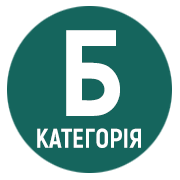THE EVOLUTION OF THE “LOST GENERATION” IN THE NOVELS OF E. M. REMARQUE
DOI:
https://doi.org/10.32782/2412-933X/2025-XXIV-18Keywords:
“lost generation”, war, post-war novel, evolution, psychologismAbstract
The paper analyses the works of E. Remarque “On the Western Front Without Change” and “The Return”, which are relevant, in particular for Ukrainian society, and which reveal the evolution of the image of the ‘lost generation’.It is shown that in the two novels, E. Remarque seems to create a “chronicle” of an entire generation.He captures in his works the still fresh wounds of twentieth-century society by frankly and simply depicting reality through the eyes of the “lost generation”. His next novel, The Return (1930), inherits the motifs of the first novel with a somewhat harsh realism, but also contains the attempts of young people to adapt to life in the new reality, their despair at the realisation that nothing will ever be the same again.As in On the Western Front Without Change Remarque shows the horrors of the First World War, but focuses on its long-term consequences. Whereas in the previous novel, the problems of civilian life arise only briefly during the hero’s leave from the front, in The Return they are the main subject of the story. The two novels complement each other.It should also be noted that in The Return there are more descriptions of nature and reflections on the social order, because the end of the war gave an opportunity for philosophical observations.A peaceful existence, compared to fighting, gives time for reflection and attempts to reintegrate into the once familiar and understandable society. However, most of the young men remained only soldiers, suffering from misunderstandings with their loved ones, drowning in a whirlpool of personal problems that they cannot solve except with the help of weapons, and eventually descending into drinking, quarrels, living in memories and accusing the authorities of betrayal and lies.
References
Болабольченко А.А. Еріх Марія Ремарк і його час : біогр. нарис. Київ : Щек, 2014. 235 с.
Пилипова І. Тема «втраченого покоління» у творчості Е.М. Ремарка. Сучасні проблеми лінгвістики, літературознавства та методики викладання мови і літератури : тези доп. та повідомл. наук. Інтернет-конференція студентів (21 груд. 2015 р.). Вінниця, 2015. Вип. 1. С. 106–107.
Ремарк Е.М. «На Західному фронті без змін» / пер. з нім. К. Главацька. Харків : КСД, 2018, 240 с.
Ремарк Е.М. «Повернення» / пер. з нім. Н. Сняданко. Харків : КСД, 2018. 169 с.
Романчук С.М. Образ «втраченого покоління» у творчості Еріха Марії Ремарка: сучасні координати висвітлення. Philological science and education: transformation and development vectors : Collective monograph. Riga, Latvia : «Baltija Publishing», 2021. 832 p.






